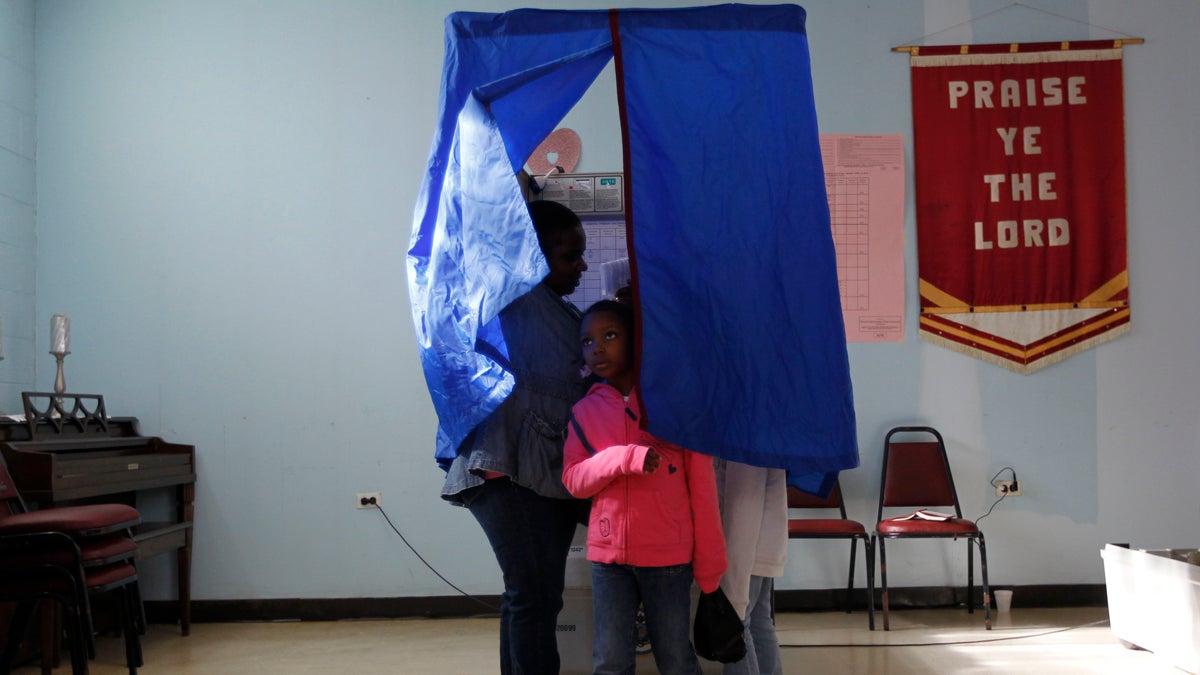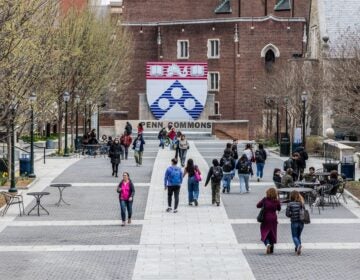Can behavioral scientists help make city government more effective?
The city of Philadelphia is working with scientists in the area to boost voter turnout for the 2019 municipal elections.

Voters in Pennsylvania's primary election in 2012. (Matt Rourke/AP Photo)
With the midterm election results in, the City of Philadelphia is already looking ahead to next year’s municipal election.
A lot of Philadelphia voters don’t vote in off-year elections, so officials are planning to send out letters to encourage people for future elections.
But what should those letters say?
Officials are asking behavioral scientists for help. One of those scientists is Daniel Hopkins, a political science professor at the University of Pennsylvania.
“Our job is to develop ideas about how behavior might change if we were to communicate differently or if we were to deliver a policy differently, but in the vast majority of cases, we don’t actually have the opportunity to test these insights in the field …so many of us end our journal articles with kind of the hope and aspiration and a call to test these ideas in the real world.”
Hopkins says partnering with the city lets him do precisely that. He adds this is a unique opportunity to study how a city, and not a particular political party, can increase voter turnout because a lot of the past research on this comes from scientists working with campaign organizations.
Anjali Chainani, the director of policy in the Office of the Mayor in Philadelphia, says this messaging connected to city services is already taking place. Now the question is how to get the most out of them.
“[City staff] may already be sending out letters to residents … or they may be already about to put out recycling bins and then we identify opportunities where we might be able to layer an experiment or an evaluation to test some small change to see what’s most effective.”
One previous experiment found that giving out recycling bins with lids in Port Richmond led to an additional half a ton of recyclables being collected every week.
This is part of a larger push to use science to figure out ways of saving the city money or offering services more effectively.
Recently, researchers at the University of Pennsylvania tested different letters to try to get more people to pay their overdue property taxes. The most effective message was: “pay your taxes now to prevent the sale of your property.”
It worked. The city ended up collecting more than $600,000 in additional revenue.
Cities like Seattle and Chicago have also used behavioral science teams to do things like encouraging residents to do things like getting their pets licensed or asking people to ride public transit at different times to reduce overcrowding.
This is happening on larger scales as well.
Hopkins, the political scientist at the University of Pennsylvania, used to be on the White House Social and Behavioral Sciences Team. One of those projects involved a website where businesses selling services to the federal government would report how much they sold, and thus how much they owed in fees. The government added in a line where businesses had to check “I certify these are accurate” before putting in the numbers. That led to more accurate reports, and the government collected an additional $1.59 million in fees in one quarter.
WHYY is your source for fact-based, in-depth journalism and information. As a nonprofit organization, we rely on financial support from readers like you. Please give today.





